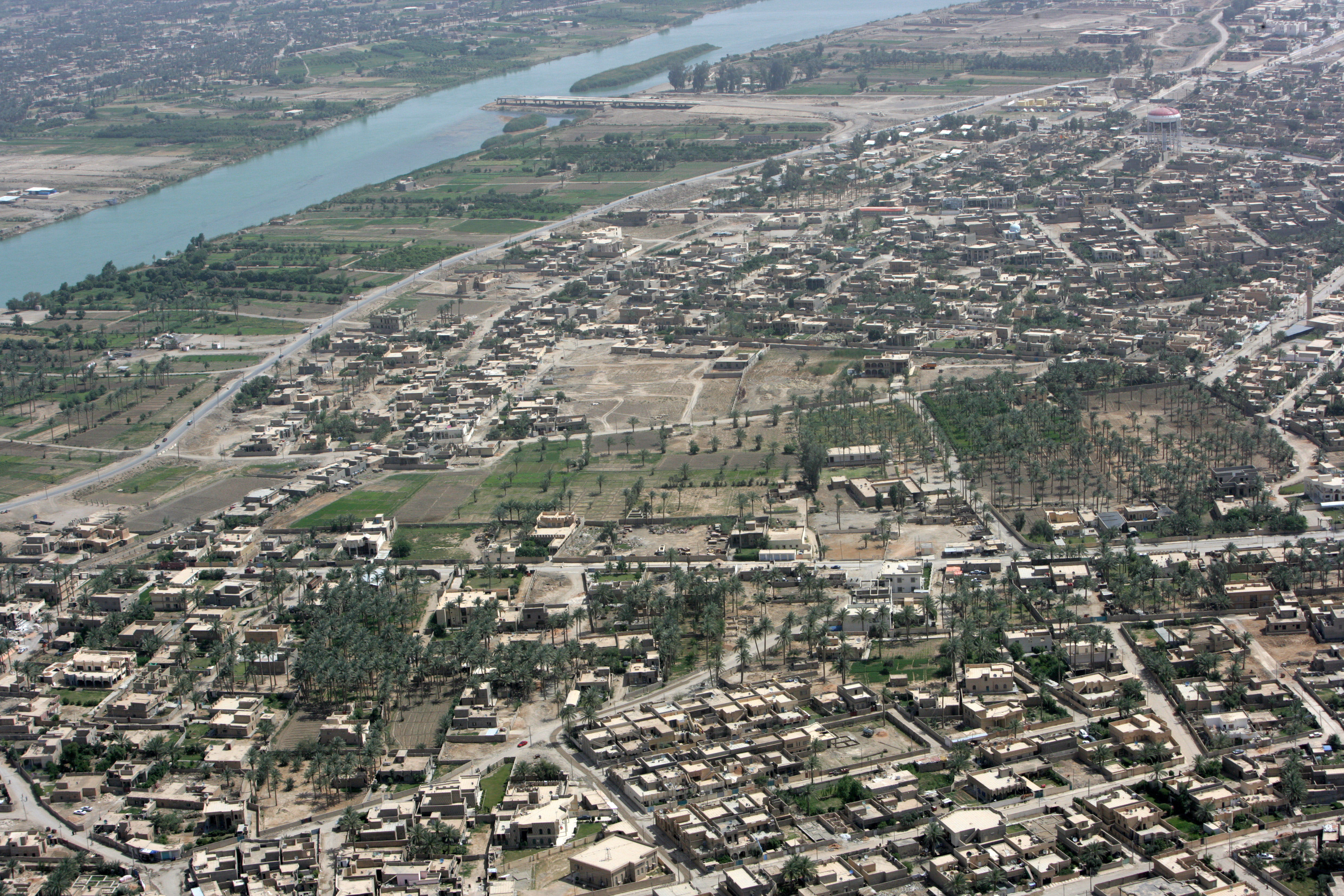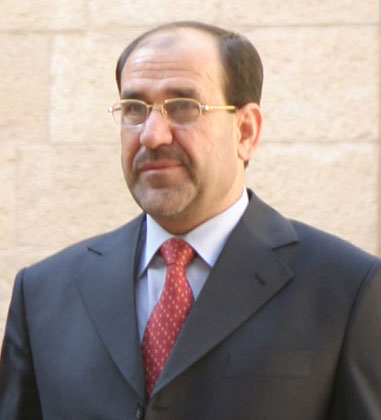|
Timeline Of The Iraqi Insurgency (2013)
Chronology January * A car bombing in the central Iraqi city of Musayyib killed 28 Shi'ite pilgrims and injured 60 others as they were returning from Karbala. In the capital Baghdad, a roadside bomb exploded near a minibus, killing 4 pilgrims and leaving 15 wounded. * A suicide bomber killed a prominent Sunni MP and six others in Fallujah on January 15, two days after Ministry of Finance (Iraq), Finance Minister Rafi al-Issawi survived an assassination attempt in the same city. The parliamentarian, Ayfan Sadoun al-Essawi, was an important member of the Sons of Iraq committee in Fallujah and part of the opposition to Prime Minister Nouri al-Maliki. On January 16, a suicide bomber detonated a truck full of explosives next to the headquarters of the Kurdistan Democratic Party in Kirkuk, killing 26 and leaving 204 injured. A similar attack against another Kurdish office in Tuz Khormato killed 5 and wounded 40. Roadside bombings and shootings in other areas, including Baghdad, Tikrit ... [...More Info...] [...Related Items...] OR: [Wikipedia] [Google] [Baidu] |
Musayyib
Musayyib ( ar, المسيب) is an increasing majority Shia Arab town in the Babil Province, Iraq. As of 2018, its population was 57,300. Musayyib sits on both the east and west banks of the Euphrates River, which splits into the Hindiya and Hilla branches just south of the city. Musayyib's municipal government has heavy representation from the Office of the Martyr Sadr, the political wing of Moqtada Sadr's Militia. There is a small minority representation by the Badr Corps as well. The city has had its occurrences of violence since the start of Operation Iraqi Freedom in March 2003. Most notably, the city experienced two large truck bombs - one on the Musayyib Bridge, which links Baghdad to Karbala, in late 2004 and one in the town center in 2005 that killed 90 people. Musayyib also saw the largest combat operation the US Army's 4th Infantry Division fought during its tour of duty in 2006. In July 2006, elements of the Mahdi Militia attacked a US patrol in the city after a disput ... [...More Info...] [...Related Items...] OR: [Wikipedia] [Google] [Baidu] |
Al Anbar Governorate
Al Anbar Governorate ( ar, محافظة الأنبار; ''muḥāfaẓat al-’Anbār''), or Anbar Province, is the largest governorate in Iraq by area. Encompassing much of the country's western territory, it shares borders with Syria, Jordan, and Saudi Arabia. The population is mostly Sunni Muslims. The provincial capital is Ramadi; other important cities include Fallujah and Al-Qa'im. The governorate was known as Ramadi up to 1976 when it was renamed Al Anbar Province, and it was known as Dulaim before 1962. A large majority of the inhabitants of the province are Sunni Muslims and most belong to the Dulaim tribe, all of which speak Arabic. In early 2014, the Islamic State, with the assistance of some local Sunni militias, launched a successful campaign to seize control of the province from the Iraqi government. Numerous offensive actions were undertaken by the Iraqi government, with the assistance of local Sunni tribes to remove ISIL's occupation of the province, especial ... [...More Info...] [...Related Items...] OR: [Wikipedia] [Google] [Baidu] |
2013 Hawija Clashes
The 2013 Hawija clashes relate to a series of violent attacks within Iraq, as part of the 2012–2013 Iraqi protests and Iraqi insurgency post-U.S. withdrawal. On 23 April, an army raid against a protest encampment in the city of Hawija, west of Kirkuk, led to dozens of civilian deaths and the involvement of several insurgent groups in organized action against the government, leading to fears of a return to a wide-scale Sunni–Shia conflict within the country. By 27 April, more than 300 people were reported killed and scores more injured in one of the worst outbreaks of violence since the U.S. withdrawal in December 2011. Background Violence in Iraq has decreased since its peak in 2006–07, but attacks remain common. Deaths rose in 2012 for the first time in three years. In the months leading up to the 20 April provincial elections, the first since the withdrawal of US forces in 2011, tensions were high in Iraq as Sunni groups claimed they were being marginalized by Prime Mi ... [...More Info...] [...Related Items...] OR: [Wikipedia] [Google] [Baidu] |
Hawija
Hawija () is the central town of Al-Hawija District in the Kirkuk Province of Iraq, west of Kirkuk, and north of Baghdad. The town has a population of about 100,000 inhabitants. Hawija District has approximately 150,000 inhabitants, mostly populated by Sunni Arabs. History Hawija, also called Hawija Al-Ubaid, is inhabited by Al-Ubaid tribe, Dulaim tribe, Al Jubour, Shammar tribes. Iraq War 2003-11 During the Iraq War, U.S. and Iraqi forces experienced numerous lethal attacks in the area from Sunni insurgents. The area of Hawija was once considered one of the most dangerous in all of Iraq with US soldiers and the foreign press corps in Baghdad dubbing Hawija " Anbar of the North," a reference to the violence wracked province in Western Iraq. After U.S. withdrawal According to open sources on 23 April 2013, Hawija became the focus of violent anti-government protest and deadly Government intervention tactics which left at least 27 Sunnis protesters shot dead, exacerbati ... [...More Info...] [...Related Items...] OR: [Wikipedia] [Google] [Baidu] |
Iraqi Army
The Iraqi Ground Forces (Arabic: القوات البرية العراقية), or the Iraqi Army (Arabic: الجيش العراقي), is the ground force component of the Iraqi Armed Forces. It was known as the Royal Iraqi Army up until the coup of July 1958. The Iraqi Army in its modern form was first created by the United Kingdom during the inter-war period of ''de facto'' British control of Mandatory Iraq. Following the invasion of Iraq by U.S. forces in 2003, the Iraqi Army was rebuilt along U.S. lines with enormous amounts of U.S. military assistance at every level. Because of the Iraqi insurgency that began shortly after the invasion, the Iraqi Army was later designed to initially be a counter-insurgency force. With the withdrawal of U.S. troops in 2010, Iraqi forces have assumed full responsibility for their own security. A ''New York Times'' article suggested that, between 2004 and 2014, the U.S. had provided the Iraqi Army with $25 billion in training and equipment in ... [...More Info...] [...Related Items...] OR: [Wikipedia] [Google] [Baidu] |
2013 Iraqi Governorate Elections
Governorate or provincial elections were held in Iraq on 20 April 2013, to replace the local councils in the governorates of Iraq that were elected in the Iraqi governorate elections of 2009. Elections took place in 12 of Iraq's 18 governorates. Elections didn't take place in the 3 governorates forming the Kurdistan Region or Kirkuk, Anbar, or Nineveh, meaning that a total of 378 provincial council seats were up for election. The Iraqi government later decided on 19 March to delay the elections in the governorates of Anbar and Nineveh due to ongoing instability caused by the insurgency and the ongoing protests, prompting criticism from Muqtada al-Sadr and John Kerry. Elections for Anbar and Nineveh were held on 20 June. Electoral Law There have been several disputes about the electoral law that is to be used for the election. The current electoral law, which was also used in the 2009 election, states that if certain parties don't get enough votes, their votes and seats are gi ... [...More Info...] [...Related Items...] OR: [Wikipedia] [Google] [Baidu] |
15 April 2013 Iraq Attacks
A wave of bombings and shootings across Iraq killed at least 75 people and injured more than 356 others on 15 April. The attacks came just days before the provincial elections which was held on 20 April. Background Violence in Iraq has decreased since its peak in 2006–07, but attacks remain common. Deaths rose in 2012 for the first time in three years. In the months leading up to the 20 April provincial elections, the first since the withdrawal of US forces in 2011, tensions were high in Iraq as Sunni groups claimed they were being marginalized by Prime Minister Nouri al-Maliki's Shiite dominated government. A number of large scale attacks linked to the Sunni umbrella group Islamic State of Iraq were carried out in early 2013 in an attempt to destabilize the country ahead of the elections. At least fourteen election candidates have been murdered, while Anbar and Nineveh provinces have postponed elections because of security concerns. Four other provinces are not schedule ... [...More Info...] [...Related Items...] OR: [Wikipedia] [Google] [Baidu] |
Baqubah
Baqubah ( ar, بَعْقُوبَة; BGN: Ba‘qūbah; also spelled Baquba and Baqouba) is the capital of Iraq's Diyala Governorate. The city is located some to the northeast of Baghdad, on the Diyala River. In 2003 it had an estimated population of some 467,900 people. Baqubah served as a way station between Baghdad and Khorasan on the medieval Khorasan Road. During the Abbasid Caliphate, it was known for its date and fruit orchards, irrigated by the Nahrawan Canal. It is now known as the centre of Iraq's commercial orange groves. Demography and ethnography Demographic composition of Baqubah has been a shifting phenomenon since the independence of Iraq. Consequently, the city served as a springboard for violence against the Shias in Baghdad and others, from 2003 to 2008 (see below for chronological detail). Then in 2014, it became a seat for the ISIS terrorists, raining violence against the Shia population once again. Following these events, the Iraqi Shia militias such as ... [...More Info...] [...Related Items...] OR: [Wikipedia] [Google] [Baidu] |
Mosul
Mosul ( ar, الموصل, al-Mawṣil, ku, مووسڵ, translit=Mûsil, Turkish: ''Musul'', syr, ܡܘܨܠ, Māwṣil) is a major city in northern Iraq, serving as the capital of Nineveh Governorate. The city is considered the second largest city in Iraq in terms of population and area after the capital Baghdad, with a population of over 3.7 million. Mosul is approximately north of Baghdad on the Tigris river. The Mosul metropolitan area has grown from the old city on the western side to encompass substantial areas on both the "Left Bank" (east side) and the "Right Bank" (west side), as locals call the two riverbanks. Mosul encloses the ruins of the ancient Assyrian city of Nineveh on its east side. Mosul and its surroundings have an ethnically and religiously diverse population; a large majority of its population are Arabs, with Assyrians, Turkmens, and Kurds, and other, smaller ethnic minorities comprising the rest of the city's population. Sunni Islam is the largest r ... [...More Info...] [...Related Items...] OR: [Wikipedia] [Google] [Baidu] |
.jpg)


